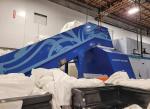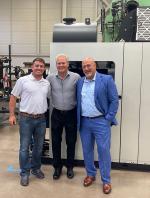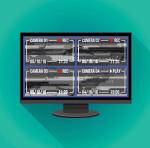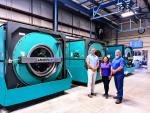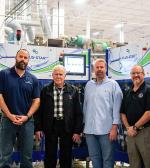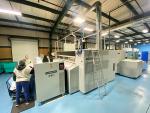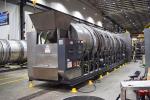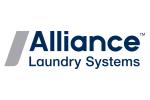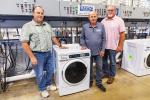TACOMA, Wash. — Most of us survived a pandemic, and now business is going as close to all out as it could be.
Labor can still be a challenge, and skilled labor is even more of a challenge. These are givens across the board in our industry.
So are the challenges of sourcing parts.
How ready is your parts room, cabinet, box, shelf behind the boiler, whatever, for the daily operations of your plant?
In a perfect world, we would have enough space and money to have one of everything, including the elf to organize and catalog this. Sure, many of us have a computerized maintenance management system (CMMS), but very few have the space and resources for “everything.”
I don’t always win the parts war, but generally I have a pretty good idea of what to expect in the search for parts, and I have some knowledge as to what original equipment manufacturers (OEM) have on the shelf … mostly.
Knowing what is “easy” to source and what is nearly impossible to find should have a significant impact on what you decide to keep as an inventory part.
We are fortunate to have some very capable, and usually well-run and managed laundry equipment manufacturers right here in the United States.
Hopefully, if you are the person sourcing parts for your plant, you already know the names of the people in the parts department at the appropriate manufacturers. If not, start building relationships with these folks.
ELECTRONIC PARTS
Now, the biggest nemesis we’ve had since the pandemic is the availability of electrical and electronic parts. Let’s start with breakers and fuses.
Back in early 2022, I needed a single pole 20-amp breaker that has got to be one of the world’s most prolific 20 pole breakers. I went to my local electrical house which is the local authorized hub for these breakers and was told that they were on backorder until July, which was about a five-month wait.
So many things go through your mind, like should I try a 15, or a 30 will do it—ha. Then you come back to the engineering realities and possible liabilities and fires or whatever and wonder if you can find one on eBay.
For me, I was fortunate enough to have a good relationship at this wholesale house and asked if we could go back and see what they did have. I found a full rack of split mini 20s.
Now, oftentimes, the person at the counter is really good at seeing what the computer shows them, but they never even wired a light switch in their life. I took four of these, and when I left, they were calling customers offering this alternative.
I am not a smart man (I’m using speak and spell to write this), but I did know what I needed. We all do at this level. Don’t be afraid to ask if you can peruse what they have.
There exist many brands of bolt-on breakers that interchange with one another. By the way, I still have three split mini 20s, if you need one.
Fuses were also difficult for a while, particularly in the common and the big. This has subsided but be aware of what your fuse needs are.
You most likely have multiple disconnects that use the same fuse. You probably should have a half dozen or so of the ones you need on hand.
You need to really think about your equipment when you consider everything electronic that we use. All things electronic are a bear to get right now. Even the people that built your equipment are struggling to get their allotment or even changing PLCs to get through their next production cycle.
This is going to affect our industry for quite some time. If these companies find success in their new relationships, your equipment becomes suddenly obsolete.
A longstanding major player in conventional washers has switched operating controls, not because of the supply chain, but for the power and ease of use of their new system.
There are many of the old systems out there, and switching up to new controls, while it is probably an eventuality, is very expensive.
I found supporting slot cards for the old system for a very reasonable price online. I needed one but bought three. They arrived from China within a week in factory packaging. I am not sure if they are legitimate, but they operate as they should.
Sometimes you need to look outside of the box.
I absolutely send my old slot cards, and recently a PLC, to an electronics repair company. Source one of these companies, and I encourage you to have your old electronics repaired, if possible.
This allows you to enjoy some more life out of a machine that is mechanically sound, but technically challenged … I suppose like many of us.
BOILERS AND COMPRESSORS
Now, the two hearts of a laundry operation. Almost all of us rely on a boiler and a compressor. Keep the obvious, and relatively affordable, on the shelf: flame scanner, fuses, safety valve, etc.
More importantly, have your relationship with your local rental company and your boiler mechanic on the tight.
Speedy delivery of a backup compressor or having the boiler guys direct cell for that 2 a.m. no start on the boiler can make the difference between running and not.
KNOW YOUR ENVIRONMENT
I have the national warehouse for a fastener supplier within a mile of our plant. I don’t need to keep hundreds of specialty screws in stock, as they have almost everything.
Maybe you have a pipe manufacturer across the street, so you don’t need to eat up real estate storing 90s and nipples.
DON’T FORGET TO NETWORK
I say it all the time. Many of us are within a stone’s throw of each other and share the same equipment. I trade parts with a few other plants. It almost makes a one-off independent plant feel like it has the support of a national.
I also communicate with the other chiefs as to what their inventory for a particular machine is and we conspire a bit to share the burden of keeping on inventory some of the more critical and expensive parts. Maybe you have a PLC and they have a frequency drive.
FINAL THOUGHTS
I really didn’t cover what parts you need on hand, but rather some, and just some, of the things you should consider when building and/or maintaining your parts inventory.
Have plenty of able people in your contact list who can supplement your needs and the shortcomings of traditional suppliers.
Keep critical, hard-to-find parts close to your vest. Consider acting as if you are in an engineer’s cost bureau group and partner up, as it were, with some of the competing laundries around you.
We are not sales and service, but probably best to run it by the folks in the C-suites, first.
It is easy for everyone to see our failures and what we may not have gotten done, but uptime will be the main calculator in determining our value.
Exploit every resource you can to be the best steward possible for the people that sign your check, and the people who count on you to be able to earn theirs.
Click HERE to read Part 1 on bridging the parts gap, the importance of actuators and pumps.
Have a question or comment? E-mail our editor Matt Poe at [email protected].




























